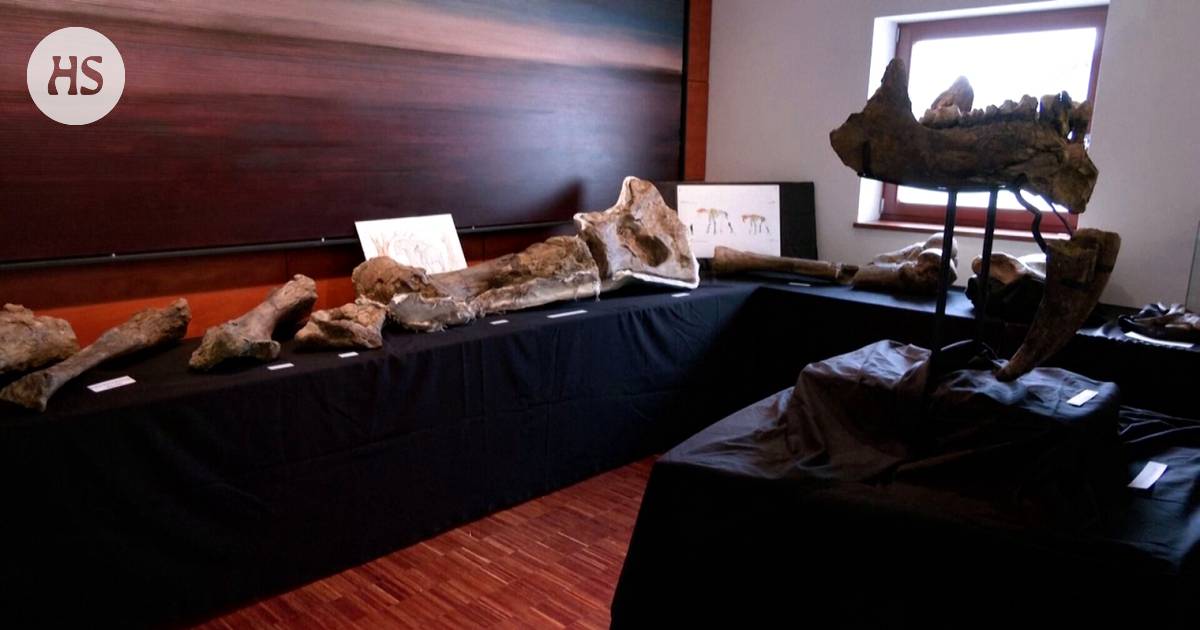The bones are from the long-tusked Deinotherium elephant, which was a distant relative of modern elephants.
Two a school-age boy made a rare discovery in Germany and found the bones of a prehistoric elephant underground. The bones are from about 10 million years ago, reports the Reuters news agency.
The bones were found last year, but were presented to the public on Monday at a museum in Taufkirchen, south of Munich. The bones have been placed in a museum there, whose collections include objects from prehistoric times.
According to the researchers, the bones belong to the Deinotherium elephant, which became extinct and was a distant relative of modern elephants. The individuals to whom the bones found last year belonged are said to have lived in Germany outside of Munich.
The 10- and 9-year-old brothers first found one bone, which was close to being crushed at the time of discovery. While the boys were digging a broom in the daylight, a boulder fell on it. The boys’ father was afraid that the bone was broken, but to everyone’s surprise, it survived the blow intact.
Erdingin in the area near the small Bavarian village of Weipersdorf, extensive excavations were launched due to the discovery. In the end, a total of 120 bones were found, some of which were badly damaged.
Some of the bones were so fragile that, according to the expert, they would have shattered into thousands of pieces if someone had hit them with a shovel.
Deinotherium i.e. in the Miocene period in Europe, Africa and Asia. The largest specimens weighed 12 tons and were up to four meters tall. The name Deinotherium means “terrible animal”.
Deinotherium had long tusks, which are very different from modern elephants. Its teeth are only suitable for eating forest foods such as leaves and shoots.
Unlike modern elephants and mammoths, Deinotherium did not graze on hay. At the beginning of the ice ages, the climate dried up, the forests shrunk and grasslands spread in their place. Deinotherium did not adapt to that, and disappeared without leaving descendants.
